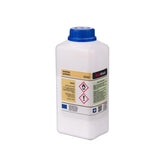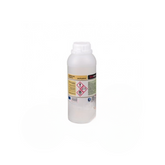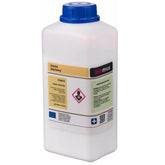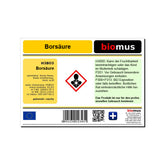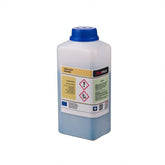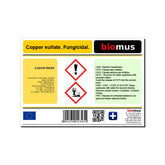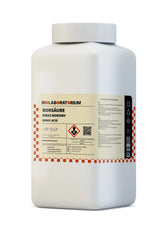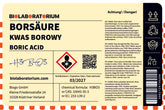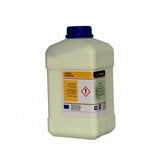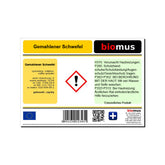Toluene, also known as methylbenzene, is an important industrial raw material with a wide range of applications. As an aromatic hydrocarbon, toluene is widely used in the chemical industry, in paints, coatings, and solvents. However, like all chemical substances, toluene must be handled with appropriate caution. In this article, we take a closer look at the properties, applications, and safety aspects of toluene.
The chemical properties of toluene
Toluene is a colorless, flammable liquid with a characteristic aromatic odor. Chemically, it belongs to the group of aromatic hydrocarbons and is a derivative of benzene, with a methyl group (CH3) attached to the benzene ring.
The most important chemical properties of toluene are:
- Boiling point: 110.6 °C
- Melting point: -95 °C
- Density: 0.867 g/cm³
- Solubility: Toluene is highly soluble in organic solvents, but only very slightly in water
Due to its structure and properties, toluene is a versatile solvent and starting material for many chemical syntheses.
Industrial applications of toluene
The main portion of toluene production is used in the chemical industry. Here are some of the most important application areas:
Production of benzene and other aromatic compounds
Toluene serves as a starting material for the production of benzene through catalytic dealkylation. Other aromatic compounds such as xylenes or ethylbenzene can also be obtained from toluene.
Production of explosives and propellants
Toluene is used in the production of TNT (trinitrotoluene) and other explosives. It is also used in some rocket propellants.
Use as a solvent
Due to its good solvent properties, toluene is widely used as a solvent in paints, coatings, adhesives, printing inks, and cleaning agents.
Production of chemicals
Toluene serves as a raw material for the production of benzene, styrene, benzoic acid, and other important chemical compounds.
Use in fuels
Toluene is added to gasoline to increase the octane number and improve combustion quality.
Other applications
Other areas of application for toluene include the production of plastics, pharmaceuticals, pesticides, and dyes.
Safety aspects when using toluene
Although toluene has diverse applications, caution must be exercised in its handling. Toluene is highly flammable, harmful to health if inhaled or swallowed, and can pollute the environment. Therefore, certain safety measures must be observed when using toluene:
Fire protection
Toluene has a flash point of 4 °C, making it highly flammable. Open flames, sparks, and smoking are strictly prohibited in areas where toluene is handled. Explosion-proof electrical equipment and effective ventilation are mandatory.
Personal protective equipment
When handling toluene, protective gloves, safety glasses, and suitable respiratory masks must be worn to avoid skin and eye contact as well as inhalation.
Environmental protection
Toluene emissions into the environment must be strictly avoided. Spilled toluene must be promptly collected and disposed of properly. Wastewater and exhaust air must be cleaned before being released into the environment.
Health protection
Toluene can be harmful to health if inhaled, swallowed, or upon skin contact. Typical symptoms of toluene poisoning include headaches, dizziness, nausea, and drowsiness. If poisoning is suspected, medical help should be sought immediately.
Conclusion: Using toluene responsibly
Toluene is a versatile industrial raw material with numerous applications in the chemical industry. However, due to its properties as a highly flammable, health-hazardous, and environmentally harmful substance, toluene must be handled with great care and in compliance with strict safety measures. Only in this way can the benefits of toluene for industry be realized responsibly and sustainably.


